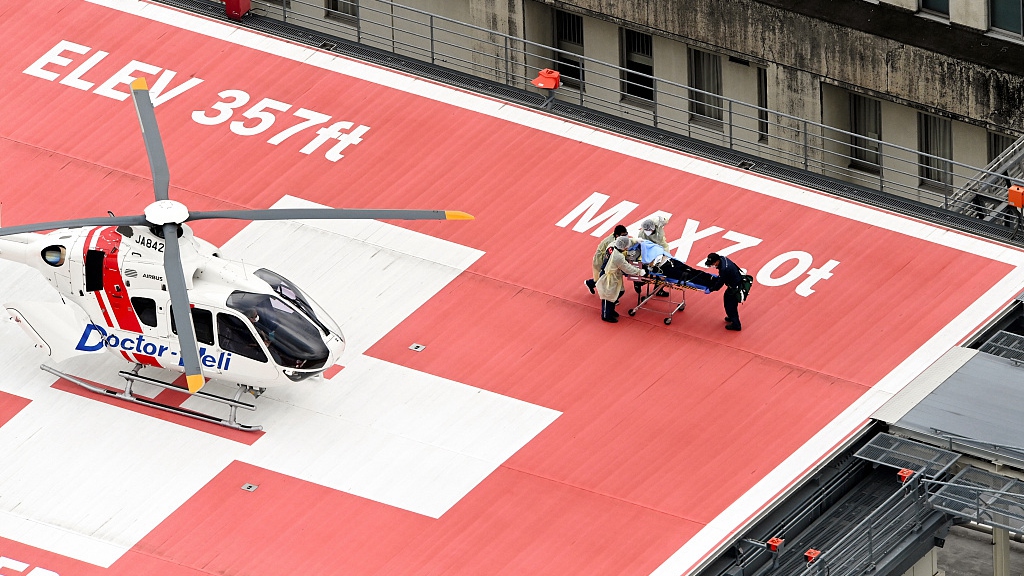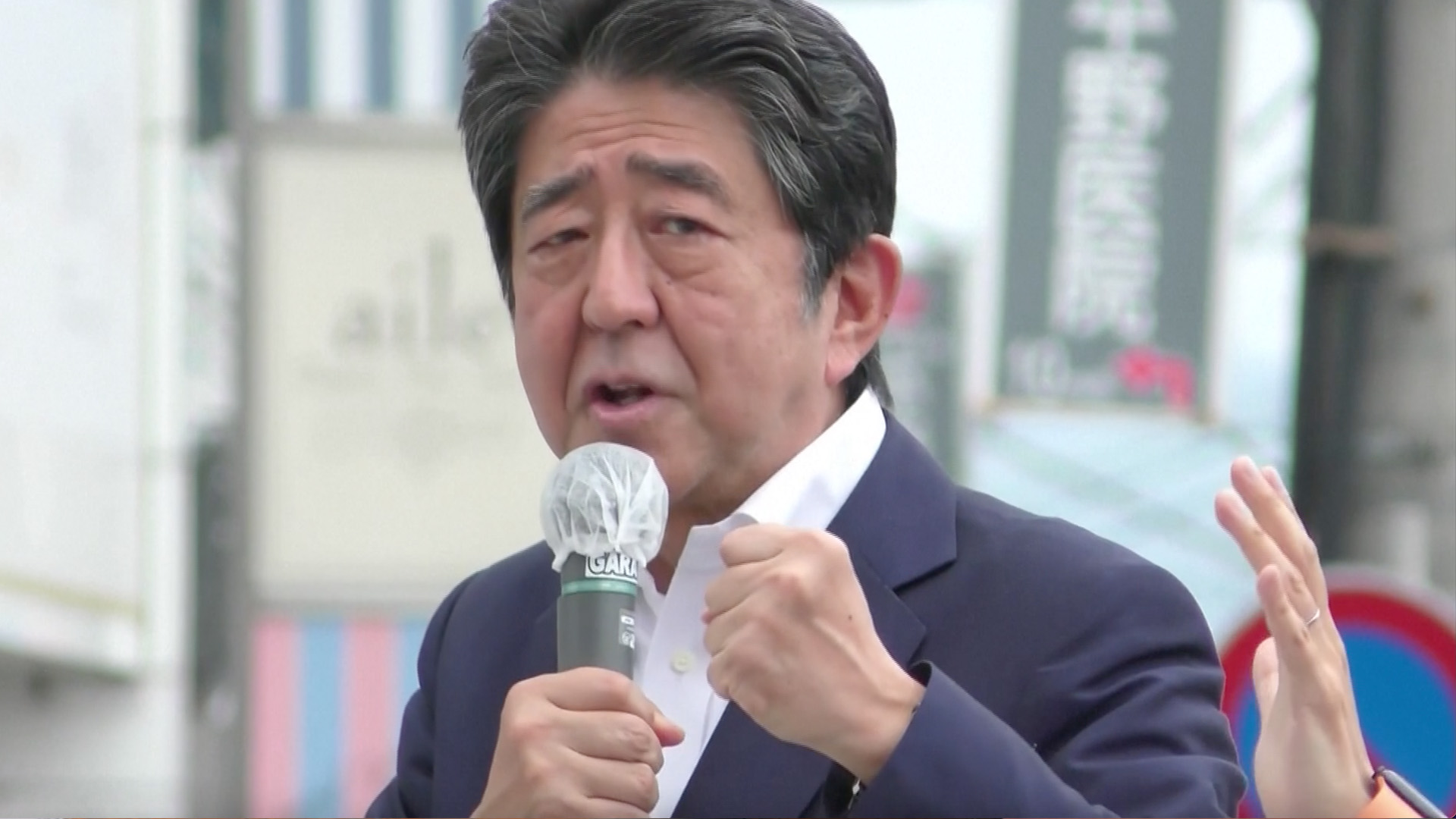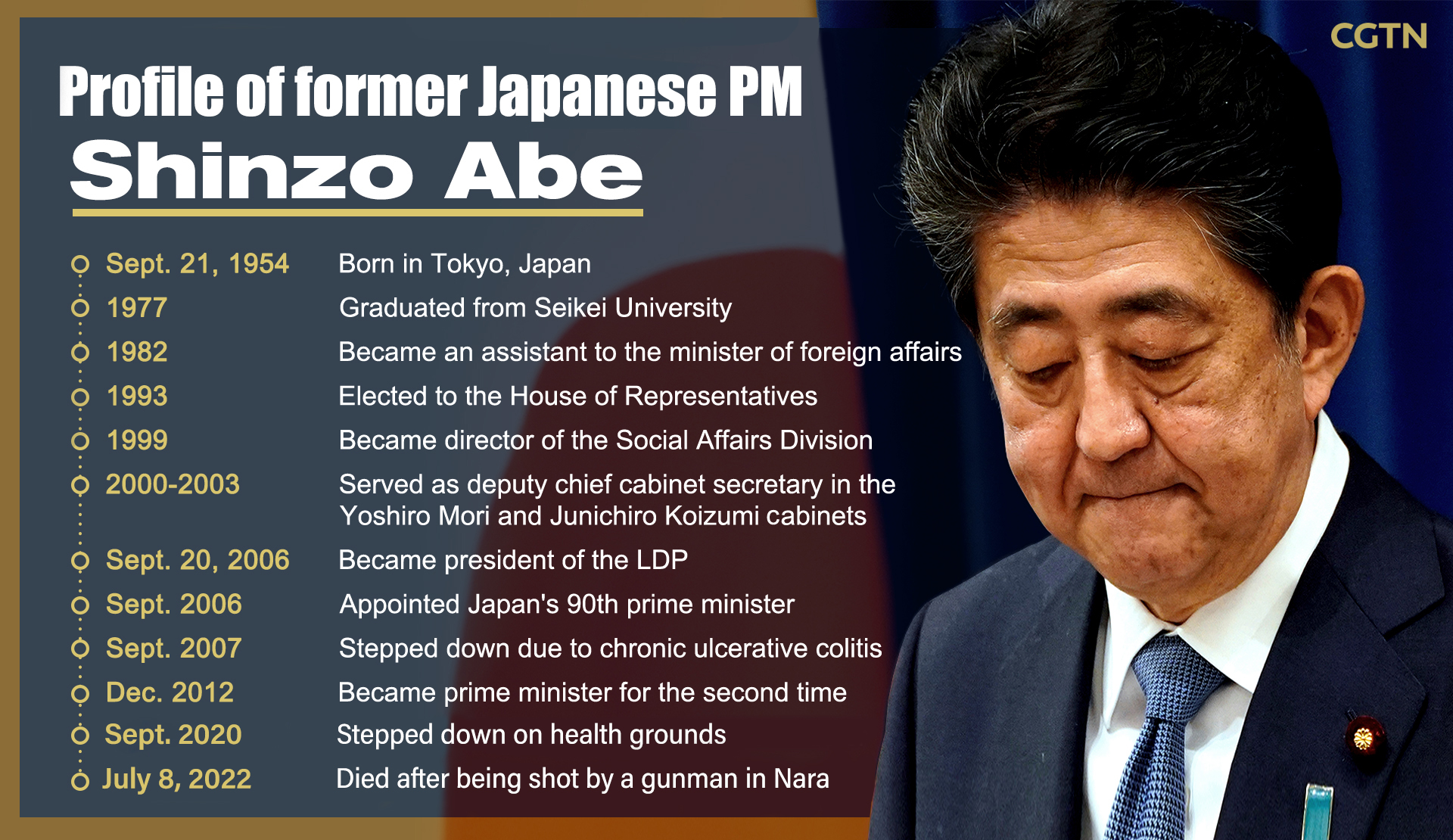
Former Japanese Prime Minister Shinzo Abe is on a stretcher to a helicopter after being shot in Nara, Japan, July 8, 2022. /CFP
Former Japanese Prime Minister Shinzo Abe is on a stretcher to a helicopter after being shot in Nara, Japan, July 8, 2022. /CFP
The Chinese Embassy in Japan expressed condolences to Shinzo Abe's family over the former prime minister's death on Friday.
An embassy spokesperson said "we are shocked by the shooting of former Prime Minister Shinzo Abe."
"During his tenure in office, former Prime Minister Shinzo Abe contributed to the improvement and development of China-Japan relations," the spokesperson added in a statement.
Chinese Foreign Ministry spokesperson Zhao Lijian on Friday also commented on Abe's death, saying that China expresses condolences and sympathies to his family.
Zhao underscored Abe's contributions to the improvement and development of bilateral relations.
02:10

Abe, 67, died after being shot Friday by a gunman during a speech in Nara when campaigning for Sunday's upper house election, local media reported.
He was Japan's longest-serving prime minister, holding the position from 2006 to 2007 and from 2012 to 2020. He stepped down in September 2020 due to a relapse of ulcerative colitis, an intestinal disease.
Ups and downs in China-Japan relations
Relations between China and Japan experienced ups and downs during Abe's premiership.
Days after becoming Japan's prime minister at the age of 52, Abe chose China as the destination of his first overseas trip in October 2006. He was the first Japanese leader to visit Beijing since 2001. The trip was seen as an effort to ease years of deteriorating ties between Asia's two biggest economies.

When he returned to office six years later, China-Japan ties were at one of their lowest points since the normalization of their diplomatic relations in 1972. Tensions rose sharply in 2012 over Japan's unilateral move to "nationalize" the Diaoyu Islands, leading to a halt in bilateral high-level exchanges.
Despite strong opposition from China and other Asian countries, Abe visited the war-linked Yasukuni Shrine in December 2013 – the last time a Japanese prime minister visited the controversial Shinto shrine where 14 Class-A convicted war criminals were honored.
The tensions began to thaw in November 2014, when Abe attended a summit of the Asia-Pacific Economic Cooperation (APEC) in Beijing. After that, leaders of the two countries resumed interactions on the sidelines of multilateral gatherings. The Japanese prime minister visited China again in September 2016 for a summit of the Group of 20 (G20) in Hangzhou.
The rapprochement gained momentum in 2017 and 2018 as the two sides enhanced communication over the situation on the Korean Peninsula and trade issues. Japan also showed enthusiasm in the China-proposed Belt and Road Initiative.
The two countries exchanged high-level visits in 2018 and 2019. Chinese Premier Li Keqiang paid an official visit to Japan in May 2018. He also attended the seventh China-Japan-South Korea leaders' meeting during the tour. Five months later, Abe paid an official visit to China on the occasion of the 40th anniversary of the signing of the China-Japan Treaty of Peace and Friendship.
In June 2019, Chinese President Xi Jinping and the Japanese prime minister reached a 10-point consensus to jointly promote the healthy development of bilateral relations on the sidelines of a G20 summit in Japan's Osaka.
Abe made another tour to China in December 2019 for the eighth China-Japan-South Korea leaders' meeting in Chengdu.
However, the improvement in bilateral ties has stalled during the past two years.

